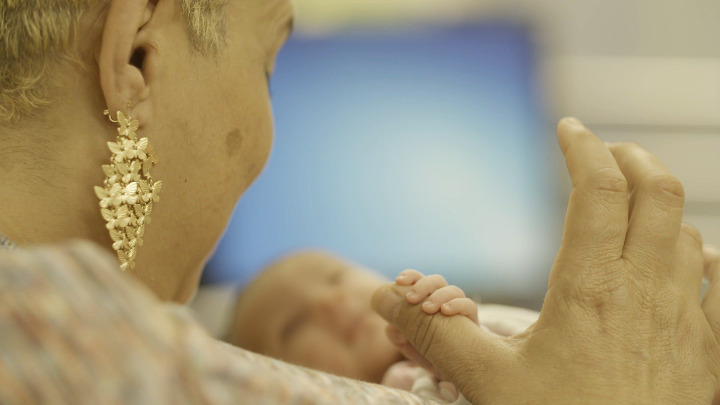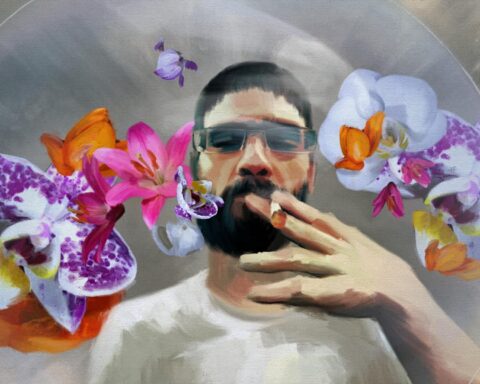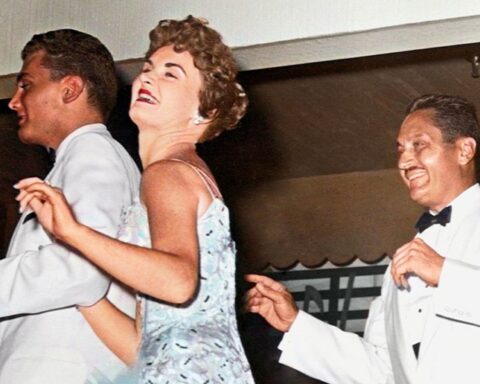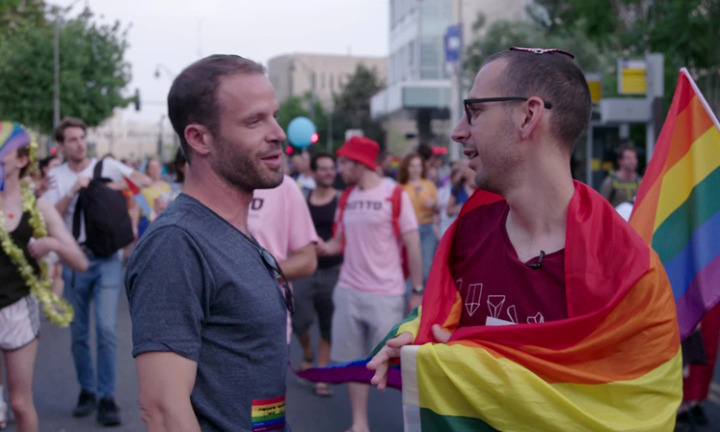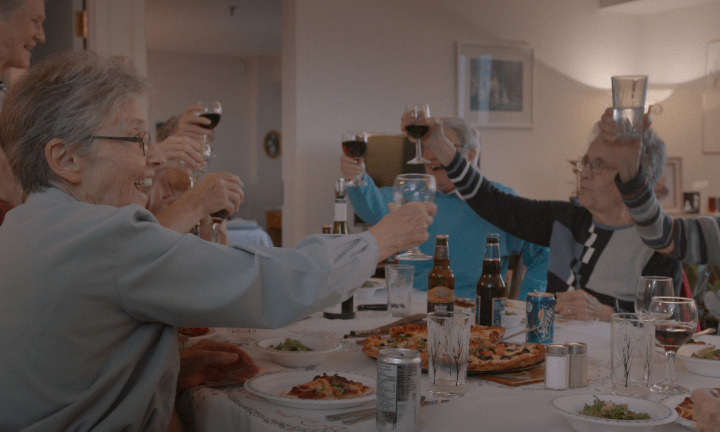Alone Together follows the life of Ravit Raichman, a part-time professional baby-cradler. A “first hug” volunteer, she donates the much-needed physical touch needed to keep abandoned newborn babies alive at a Tel Aviv hospital. The doc is a revealing look at how selfless acts of care can be life-saving for both parties involved.
The subject of the documentary is pushing 50 and longing for a sense of connectedness and kinship. Single, retired, and with a condition that robbed her of motherhood, Raichman oozes a maternal love with no place to go. She pours it into volunteering, both at the hospital and cooking up a storm at a food kitchen. The film watches as she wonders if it is enough to fill the family-shaped hole in her life.
The possibility of foster parenthood drives the doc. While Raichman had considered it for years, she finally begins the process for the first time in the film. Although she is encouraged along the way, the process is arduous and becomes daunting as it becomes clear she would have to sacrifice volunteering and the joy that comes with it. Alone Together is a portrait of a woman at a crossroads: should she continue with the comforts of the community she knows, or give it up for a new kind of family?
Most of all, the film pictures an incredibly selfless woman who draws upon a seemingly never-ending well of love and care. Raichman is pictured most often in the hospital, clutching orphaned newborns to her chest, singing softly in a lonely, sterile room. While she’s never birthed a child, she helps so many through some of the most helpless periods of their lives. She holds the abandoned babies more than their own mothers did.
When we see Raichman in the kitchen of a local shelter, a whole different side of her is revealed, but the same heart shines through. Instead of sitting for hours with a baby in her arms, she is on her feet, hustling a toddler-sized bag of couscous into a vat to cook for a crowd of hungry people. She kisses everyone on the cheek on their way out the door during the holidays. While it is easy to have sympathy for a newborn, it’s clear Raichman extends the same empathy towards the adults she feeds and cares for, too.
The film’s approach is intimate and not overly stylized, allowing the focus to fall on Raichman–as it should. A verité approach allows the camera to capture private and public moments alike. The film manages to capture Raichman’s pervasive sense of loneliness that lingers even when she is surrounded by people.
In Alone Together, traditional understandings of family and community are interrogated. Raichman emanates enough care and tenderness to adopt everyone she meets as a sort of family member. While she carries the immense pain of not being a biological mother, she is certainly an honorary one to many, and this film will make her an inspiration to even more.
Alone Together screens from June 13-14 at the Toronto Jewish Film Festival. It has won the David A. Stein Memorial Award, given to the director of the best documentary having a Canadian Premiere at the festival.




